Uncategorized
-
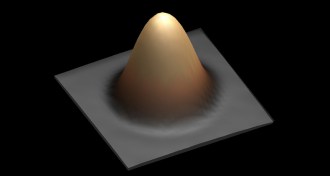 Physics
PhysicsSingle-atom magnets store bits of data
Scientists read and write data by harnessing the magnetic properties of holmium atoms.
-
 Plants
PlantsGenetic switch offers clue to why grasses are survival masters
Scientists have identified a genetic switch that helps grasses regulate their carbon dioxide intake.
-
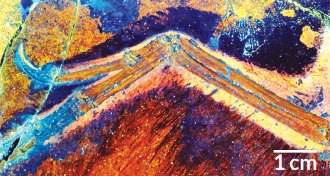 Paleontology
PaleontologyUnder lasers, a feathered dino shows some skin
Laser-stimulated fluorescence reveals detailed images of soft tissue in a feathered dinosaur from 160 million years ago.
-
 Animals
AnimalsShocking stories tell tale of London Zoo’s founding
In The Zoo, Isobel Charman pens a gripping narrative of the London Zoo’s early days, when workers had a hard time keeping animals alive.
By Meghan Rosen -
 Physics
PhysicsTo understand rivers, let physics be your guide
Where the River Flows unites physics and environmental science to explain Earth’s waterways.
-
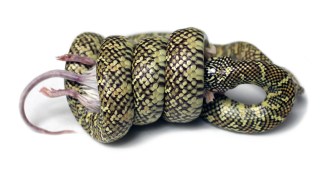 Ecosystems
EcosystemsA king snake’s strength is in its squeeze
King snakes feast on other, larger snakes, perhaps thanks to superior constricting abilities, new research suggests.
-
 Neuroscience
NeuroscienceSmartphones may be changing the way we think
We rely on our digital devices to connect with others and for memory and navigation shortcuts. What is that doing to our brains?
-
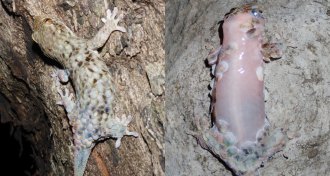 Animals
AnimalsDetachable scales turn this gecko into an escape artist
A new species of gecko evades predators by shedding its scaly armor.
-
 Science & Society
Science & SocietyWhite House budget plan would slash science
President Donald Trump’s budget proposal for fiscal year 2018 includes some big cuts for science.
-
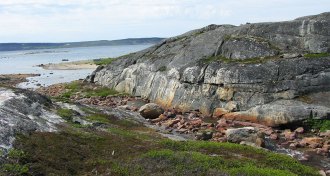 Earth
EarthRemnants of Earth’s original crust preserve time before plate tectonics
Canadian rocks containing bits from 4.2 billion years ago suggest that full-fledged plate tectonics had a late start.
-
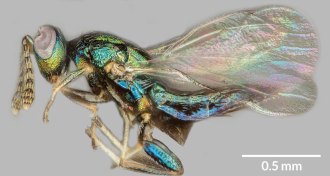 Animals
AnimalsHow one enslaving wasp eats through another
A wasp that forces oaks to grow a gall gets tricked into digging an escape tunnel for its killers.
By Susan Milius -
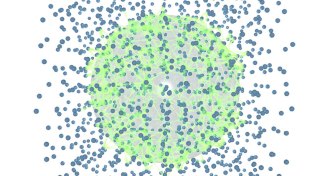 Physics
PhysicsSuperfluid helium behaves like black holes
Simulations of superfluid helium show it follows the same unusual entropy rule that black holes do.